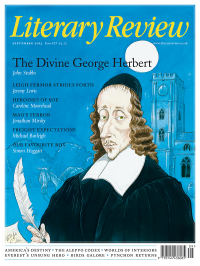Simon Hoggart
Box of Delights
Armchair Nation: An Intimate History of Britain in Front of the TV
By Joe Moran
Profile 456pp £16.99
We didn’t have a TV in the early 1950s, not even for the coronation. To the middle middle classes, television was a bit naff, like lava lamps later, or giant screens today. But in 1956 we went to live in America for a year and everybody had a television, just as everyone had a car. My parents had their favourites: Sid Caesar in Your Show of Shows had us creased up every Saturday night. They also loved Person to Person with Ed Murrow, in which the famous war reporter interviewed a celebrity, the twist being that the celebrity was in his or her own home, and Murrow himself was in the studio smoking a cigarette, the length of which remained mysteriously the same for thirty minutes. This was an early example of what is pretentiously called ‘the grammar of television’; Murrow, like us, was watching on a screen, while we watched him watching.
Back home, my parents finally acquired a TV (rented, which seems as bizarre today as hiring a toaster). But lots of the neighbours didn’t, so when my father actually appeared on television, many of them crowded into our living room to watch. These days almost nobody is excused being on

Sign Up to our newsletter
Receive free articles, highlights from the archive, news, details of prizes, and much more.@Lit_Review
Follow Literary Review on Twitter
Twitter Feed
It wasn’t until 1825 that Pepys’s diary became available for the first time. How it was eventually decrypted and published is a story of subterfuge and duplicity.
Kate Loveman tells the tale.
Kate Loveman - Publishing Pepys
Kate Loveman: Publishing Pepys
literaryreview.co.uk
Arthur Christopher Benson was a pillar of the Edwardian establishment. He was supremely well connected. As his newly published diaries reveal, he was also riotously indiscreet.
Piers Brendon compares Benson’s journals to others from the 20th century.
Piers Brendon - Land of Dopes & Tories
Piers Brendon: Land of Dopes & Tories - The Benson Diaries: Selections from the Diary of Arthur Christopher Benson by Eamon Duffy & Ronald Hyam (edd)
literaryreview.co.uk
Of the siblings Gwen and Augustus John, it is Augustus who has commanded most attention from collectors and connoisseurs.
Was he really the finer artist, asks Tanya Harrod, or is it time Gwen emerged from her brother’s shadow?
Tanya Harrod - Cut from the Same Canvas
Tanya Harrod: Cut from the Same Canvas - Artists, Siblings, Visionaries: The Lives and Loves of Gwen and Augustus John by Judith Mackrell
literaryreview.co.uk